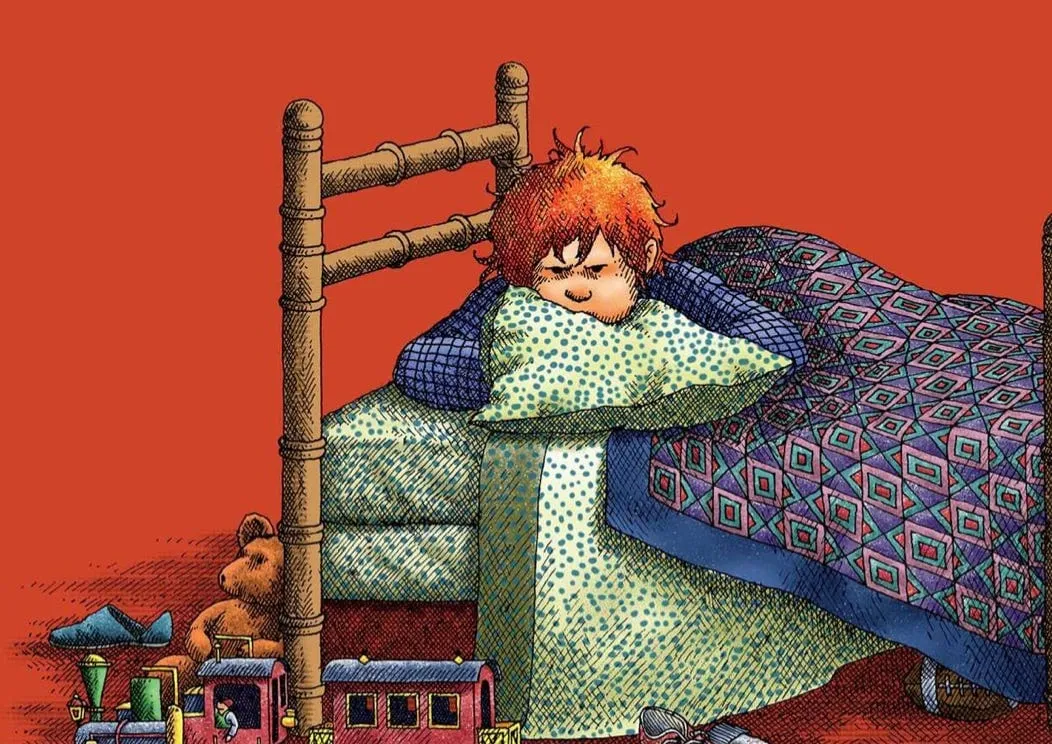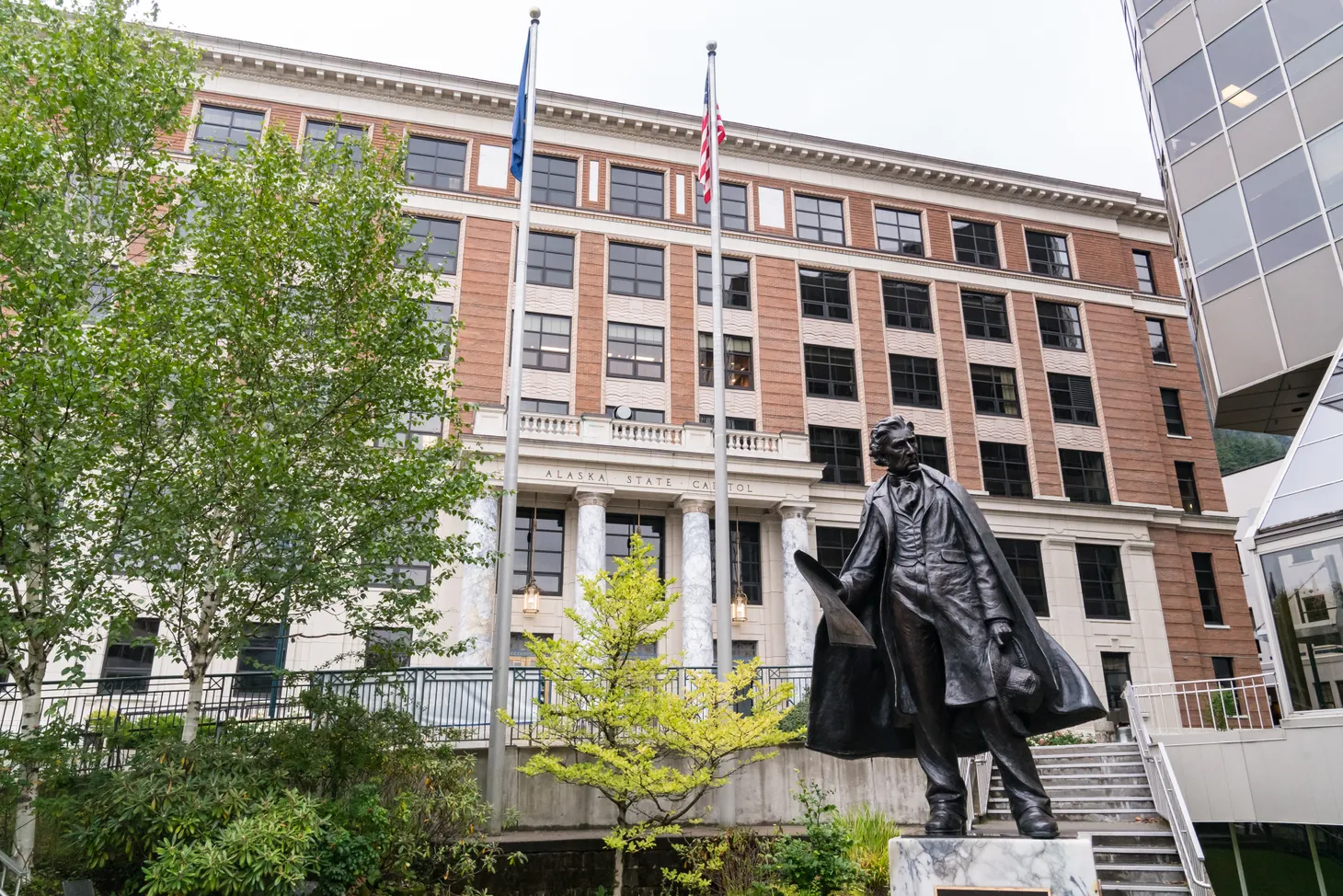Dunleavy has killed the BSA
A precedent-breaking veto means the state's baseline public school funding is no longer a reliable baseline for schools to depend upon.
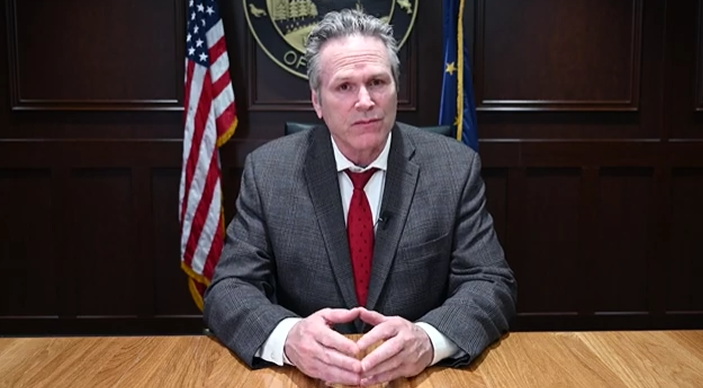
It’s Friday, Alaska! Go enjoy the sun!
In this edition: Alaska Gov. Mike Dunleavy issued a slate of budget vetoes on Thursday, claiming he was forced into the action by stagnating oil prices. Yet, it’s hard to overlook the fact that a majority of the cuts come from public education. Of the $150 million in vetoes, $76 million are cuts to public education funding, including a cut to the state’s baseline education funding levels, marking the first ever time the state hasn’t funded schools according to the law. What a legacy. Meanwhile, Congress is pushing ahead with Medicaid cuts that advocates say could force the closure of the state's last two Planned Parenthood clinics, which would be a loss of timely and, critically, non-judgmental care for all Alaskans. Also, the reading list and weekend watching.
Current mood: 😬
Something fun: Last week, I got to go out and report on the launch of the Nintendo Switch 2. Not only was I reminded about why these in-person events are so important and wholesome, but I scored a console, too.
Dunleavy has killed the BSA
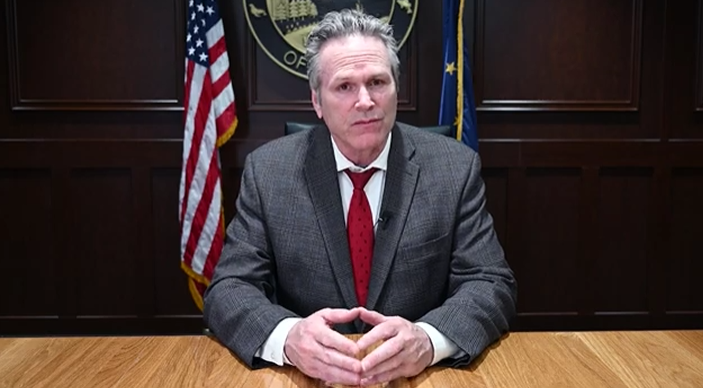
Alaska Gov. Mike Dunleavy – a Republican who has spent many news conferences browbeating reporters with the fact that he was once a teacher, a school administrator (with a troubled past) and a school board member and therefore is the foremost supporter of public schools – on Thursday cemented his education legacy by becoming the first-ever governor in state history to veto school funding below the level laid out in state law. Seizing on an uncertain revenue outlook thanks to declining oil revenues (which are actually substantially up today due to unrest in the Middle East), Dunleavy insisted he had no choice but to cut.
“We’re going to make sure that those things that are absolutely necessary are in the budget and those things that we can live without, at least for a little while, will be removed,” he said, in a slickly produced video published to social media, ahead of the veto release.
That said, it’s hard to overlook the fact that of the roughly $150 million in vetoes of "things that we can live without," a total of $76 million will come from public education funding. Of that, it slashes $51 million from the state’s Base Student Allocation, the state’s baseline funding formula that determines the amount of funding each district receives based on factors such as location and student needs. It will translate to a cut of at least $200 for every student in Alaska, and for some, much more. Intensive needs students, for example, can receive up to 13 times as much, meaning Dunelavy’s veto will amount to a $2,600 cut for them. Students in rural districts, where the higher costs are factored in, will see even larger cuts.
The governor’s vetoes also include cuts to school maintenance and repairs, teacher recruitment and incentive programs, as well as early learning programs.
It’s the latest bit of whiplash in what has been a miserable year for school districts across the state, as they’ve had to adjust and readjust their budgets depending on the whims of Dunleavy’s veto pen. He vetoed legislators’ attempts to increase the BSA three times over the last two years, with legislators finally overriding his veto to increase the BSA by about $700. While that amount may look big on paper, it wouldn’t have made for a significant year-over-year funding bump when factoring in last year’s one-time money and inflation.
That means Dunleavy’s veto amounts to a cut in school funding from the current year, not a smaller-than-expected increase.
At an emergency public hearing on Thursday night, Anchorage School District Superintendent Jharrett Bryantt said the vetoes created an “education emergency” that will force districts to consider additional last-minute cuts.
“Emergency school closures are on the table for districts, as are reductions that will result in increased class sizes, poor learning environments, and will continue to result in the decaying infrastructure we see all across the state in our schools,” said Bryantt, according to coverage by the ADN.
That's an exercise legislators across the political spectrum had hoped to avoid when they approved the BSA increase earlier this year. All-too-real stories of school closures, program eliminations and ballooning class sizes helped put education-focused coalitions in the majority of both legislative chambers, but they're ultimately boxed in by the governor's veto pen.
Dunleavy, however, has remained stubbornly opposed to such an increase and has instead favored “targeted investments” that redistribute funding to programs, such as charter schools and homeschool programs, that primarily serve wealthier and less diverse student populations. Despite those demands gaining little traction with legislators, who by and large see this redistribution of wealth for what it is, Dunleavy is treading new ground on inflicting harm on the public school system.
In the big picture, Dunleavy has effectively rendered the BSA meaningless. Once considered a dependable baseline number for districts to plan on, Dunleavy has set a new precedent that it can simply be ignored (though his actions are likely to draw a lawsuit challenging the state for failing to uphold its constitutional duty on education, so stay tuned). While Dunleavy has railed against the on-a-whim treatment of the PFD, that’s precisely what he’s doing to school funding.
It represents a sea change in public education policy, and legislators don't seem to be particularly inclined to play nice anymore.
“I think the governor just abandoned us, and we’re going to have to figure out the best way to move forward,” Senate President Gary Stevens, a Kodiak Republican, told the ADN.
Legislators have a good shot at overriding the governor’s veto, given that 46 legislators voted to override his veto of the BSA increase, and a budget override requires 45 votes. However, just when that happens and when districts will get some real clarity on their funding moving forward is unclear. Legislative leadership could call a special session to attempt an override, but it appears that they will wait until the beginning of the 2026 legislative session, which is about halfway through the budget year, to take up an override.
Reading between the lines, it seems like they're not entirely confident they'd have the 45 votes if the issue were put to a vote today.
“Education is one of the biggest issues facing our state and a top priority of our coalition. If we’re going to have an override of any vetoes, we have to get it right and be successful,” said Rep. Calvin Shrage, an Anchorage independent who oversees the capital budget, in a prepared statement.
Stevens told the ADN that districts should “have hope” that the legislators will come around and override the governor’s veto.
“Right now, districts are just in turmoil and having a tough time existing,” said Stevens. “As time passes, I think legislators will realize the very difficult position their districts are in.”
More coverage: ADN, Alaska Current (me), Juneau Empire, Alaska Public Media, KTUU, Alaska Beacon, Peninsula Clarion
Planned Parenthood in Congressional crosshairs
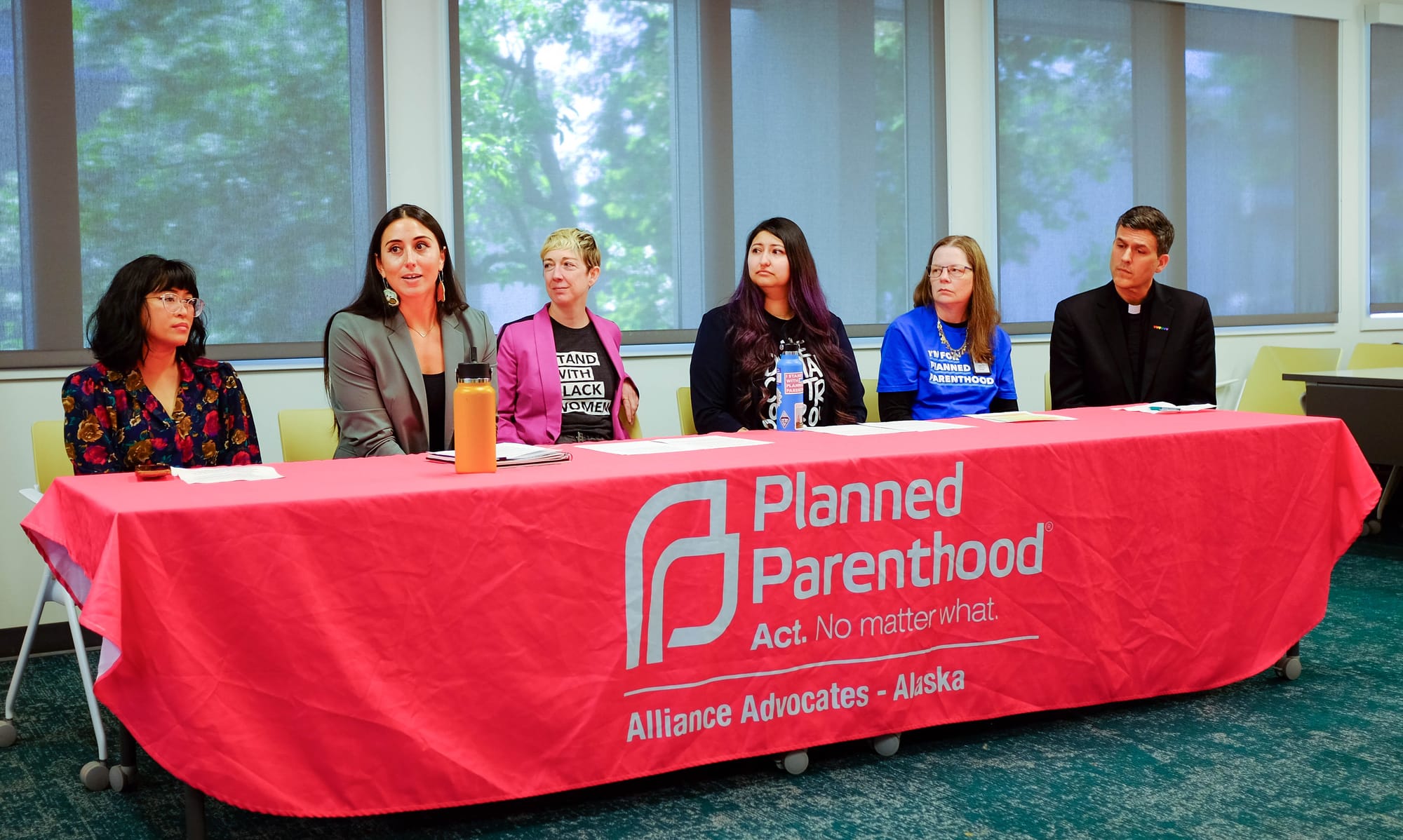
Anchorage First Presbyterian Rev. Matt Schultz has been present at many people’s moment of death, and he says that all too often, people spend that time filled with guilt and grief about the medical debt they’ll leave behind to their families or wish they had only been able to see a doctor earlier. At a roundtable hosted by Planned Parenthood Alliance Advocates Alaska, he said he worries that the cuts and reductions to Medicaid that Congressional Republicans – backed by Alaska U.S. Rep. Nick Begich – are pushing as part of Trump’s tax bill will only make those stories more common.
It’s the latest and most serious attack yet by the GOP to gut the social safety net program that supports about one-third of all Alaskans. Rev. Schultz said opposing the cuts is easy when the impact on the state’s neediest and most vulnerable citizens is so dire.
“I think we would all be in tears right now, if not for the fact that this has become an absurd act of repetition for all of us to time and time and time again, be forced to turn up at our congressional delegations offices and beg them not to kill their own constituents,” he said. “Over and over and over again, begging for the life of my congregation members, my neighbors, my children, to say, please don’t yank away the thing that’s keeping them alive.”
Cuts to Medicaid are expected to have far-reaching impacts on Alaskans, about a third of whom rely on Medicaid for health coverage. Estimates of the effects vary by proposal, but some estimates are that 40,000 Alaskans could lose coverage. The program also covers more than a third of all births in Alaska, and legislators recently approved changes to extend post-partum coverage for mothers.
But the impacts would be felt particularly hard by Planned Parenthood, said Ada Goodman, the Health Center Manager for the Anchorage Planned Parenthood. The bill is not only expected to kick people off Medicaid, but it would also explicitly bar Medicaid from being used at Planned Parenthood clinics, even though federal funding is already barred from paying for abortions. Without Medicaid, patients and advocates warn that the state's two remaining clinics will close, which would result in a loss of health care coverage for everyone.
“Our state’s health care system simply cannot handle the loss of Medicaid, nor the loss of the health care Planned Parenthood provides. Make no mistake, patients will go untreated, and cancers will go undiagnosed. Diagnosis will be missed. People will suffer and die,” she said. “Ask yourself, would you tolerate this for a loved one? Would you be okay to have someone you know needlessly die because they had to make the tough decision to have a suspicious lump checked or to put food on their table? No, you’re not okay with that. Then why is it okay to place that burden on others?”
Advocates say Planned Parenthood often provides care that may not be available through other clinics or doctors’ offices. And if they are, it may come with long waits or other barriers – including a doctor’s personal belief – that make getting timely and critical care an uphill struggle with potentially fatal implications.
That’s the case for Bri Campbell, who spoke at the event, detailing her experience going through pregnancy complications that resulted in the need to abort an unviable fetus. In one case, she said that a doctor told her the procedure needed to wait to see if it developed a heartbeat.
“They insisted we wait … it was horrible,” she said. “I knew I needed that surgery, and the provider decided no, we were going to wait, so I had to spend days with a dead fetus inside me, knowing that there was nothing I could do. I was mad because I was forced to carry the fetus longer than necessary, and now I’m mad because I realized that provider put their personal beliefs ahead of my health and safety.”
For Planned Parenthood, that kind of immediate, low-barrier and supportive care is part of their mission, but it’s also not exactly cheap to provide. Planned Parenthood Alliance Advocates Alaska State Director Rose O’Hara-Jolley said that margins can be so slim at clinics that the loss of the Medicaid population, which accounts for about a third of Planned Parenthood patients, would likely lead to the closure of the clinics.
They stressed that this will lead to a loss for everyone, making critical coverage unaffordable for all but those able to afford travel for care.
“Where is your humanity, right?” they said of the cuts. “It’s not necessarily just a loss of a revenue stream for us, it is a loss of access to life-saving care for patients and Alaskans … There is nowhere else for people to go, and if we do not have enough patient base to stay open, then that is a cascading issue to those even with wealth and privilege. If we are the only providers of those services, then you will need to leave the state to get some of those services. It creates a barrier to care for all, except the extremely, extremely wealthy. And denying care to anyone is not something that should be up for debate.”
The advocates are turning to Sens. Murkowski and Sullivan in hopes that they might recognize the harms and help steer the legislation away from such disastrous cuts. And there’s some hope on that front. Murkowski, who broke with Republicans in 2017 to oppose the repeal of the Affordable Care Act, has long been an outspoken advocate for Medicaid and for Planned Parenthood. However, Sullivan has suggested openness to Medicaid cuts.
The group was armed with plenty of numbers, statistics and personal stories about the importance and complexity of delivering health care in Alaska, but the argument seemed to be best summed up by Rep. Schultz, who said, “How many times do we have to return to our congressional delegation and say, Please give a shit?”
Reading list
- Begich joins U.S. House Republicans in voting to claw back public broadcasting money
- As Alaska’s schools struggle, lawmakers announce task force to study why
- Who has beef with the Republican mega-bill? Alaska’s solar industry, among others.
- Asked about Trump sending Marines to LA, Sen. Dan Sullivan had nothing to say
- With the upcoming veto deadline, Dunleavy can seal his anti-school legacy
- Alaska detained 42 men arrested by ICE and flown in from out of state, amid federal crackdown
- Behind the cameras: Gavel Alaska broadcasts the business of state government to Alaskans
Weekend watching
It's been a very heavy week for news, so here's a video about playing with dirt.
Have a nice weekend, y'all.
The Alaska Memo Newsletter
Join the newsletter to receive the latest updates in your inbox.


